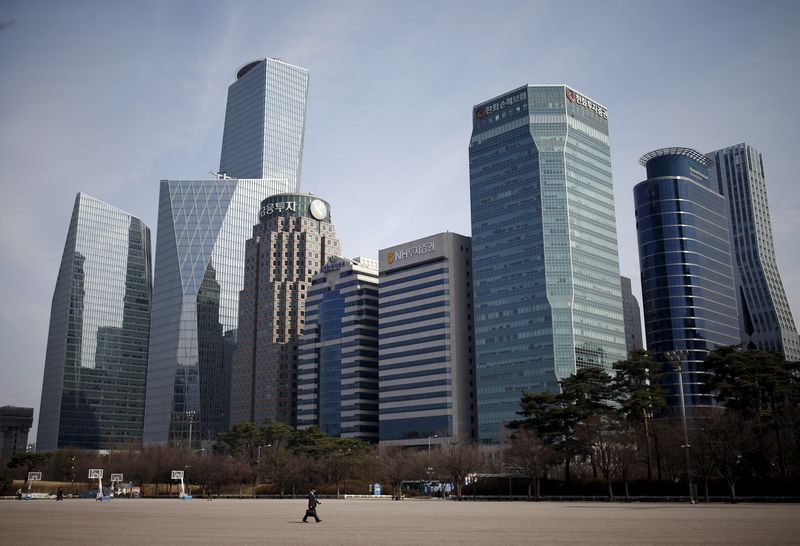By Jihoon Lee and Cynthia Kim
SEOUL (Reuters) - South Korea said on Tuesday it would cut annual government spending for the first time in more than a decade next year, as it strives to cut back on pandemic-era stimulus and help the central bank temper inflationary pressures.
Unveiling the first budget proposal under right-leaning President Yoon Suk-yeol, the finance ministry said government expenditure will be 639 trillion won ($473 billion) in 2023.
That is 6% smaller than this year's spending after two supplementary budgets, and would be the first annual decline in spending since 2010, assuming there are no additional budgets for 2023.
Excluding extra budgets, South Korea's 2023 spending will grow by 5.2%, the slowest since 2017.
The move marks a shift away from aggressive fiscal spending under predecessor Moon Jae-in's left-leaning government in recent years and from the massive stimulus measures taken during the pandemic to help the economy withstand the COVID-19 crisis.
The Bank of Korea, which has been at the forefront of a global tightening cycle, has raised interest rates by a total of 2 percentage points since August last year.
By contrast, governments from Australia to Canada have continued expansionary fiscal policies so far even as their central banks have raised rates to tackle soaring inflation.
"The government is shifting its fiscal policy stance completely to 'sound financing' to secure fiscal sustainability, improve external credit standing and spend responsibly for future generations," the South Korean ministry said in a statement.
To achieve the 2023 spending cut, the government said it would "transfer some public projects to the private sector" and would cut wages of senior officials at the highest levels of government, according to the budget.
The government plans to cut spending for public infrastructure by 10.2%, while subsidies and other spending for small- to medium-sized businesses will decline by 18% next year.
But the budget also foresees an increase in social welfare expenses for low-income earners and the vulnerable, with demand for welfare spending only likely to grow in a rapidly aging economy. South Korea's birth rate hit a new low of 0.81 child per woman last year.
Government expenditure on defence will increase 2.5% to 57.1 trillion won as the nation seeks to modernise military equipment against possible threats from North Korea.
South Korea's fiscal deficit will narrow to 2.6% of GDP next year, from an estimated 5.1% this year which included extra spending, the finance ministry said.
The debt-to-GDP ratio will fall for the first time in five years to 49.8% from 50.0%, according to the ministry.
The Yoon administration aims to maintain the ratio of fiscal deficit to GDP at a mid-2% level and the debt ratio below the mid-50% level until 2026, and is preparing a bill to make these targets legally binding.
The finance ministry said it will issue 167.8 trillion won of bonds in 2023, down from a total of 177.3 trillion won this year. The net increase in treasury bonds is projected at 61.5 trillion won.

The budget plan will be submitted to the national assembly on Friday.
($1 = 1,350.0400 won)